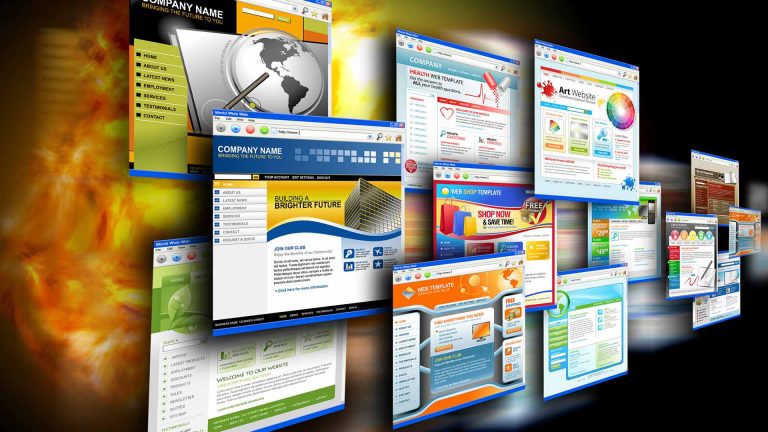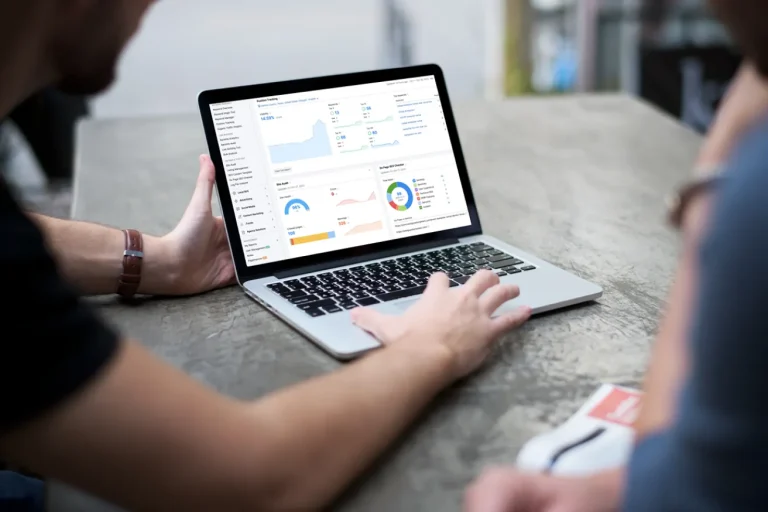Exploring the Overview of Industrial E-commerce – Update 2023
Entering the world of ecommerce may initially appear complex and daunting. However, for industrial product retailers, it’s crucial not to overlook or ignore the advantages it brings. Ecommerce offers numerous benefits that can enhance your business, such as increased marketing opportunities and access to a broader customer base. In this article, we will Explore the overview of the e-commerce industrial and how they can improve the purchasing experience for your customers.

1. What is the industrial ecommerce ?
Industrial ecommerce refers to the online buying and selling of industrial goods and services. It involves the use of digital platforms and technologies to facilitate transactions between businesses in the industrial sector. Industrial ecommerce platforms provide a virtual marketplace where manufacturers, wholesalers, distributors, and other industrial businesses can showcase and sell their products to a wide range of customers.
In industrial ecommerce, businesses can list their products or services on online platforms, which act as digital marketplaces. These platforms typically offer features such as product catalogs, search functionality, pricing information, and secure payment systems. Customers can browse through the available products, compare prices and specifications, and place orders directly through the platform.
Industrial ecommerce encompasses a wide range of products and services related to industries such as manufacturing, construction, automotive, energy, chemicals, machinery, and more. It includes both raw materials and finished goods, as well as specialized equipment, components, spare parts, and industrial services.
The goal of industrial ecommerce is to streamline the procurement process, improve efficiency, expand market reach, and enhance the overall customer experience in the industrial sector. It enables businesses to overcome geographical limitations and connect with potential buyers or suppliers on a global scale. Industrial ecommerce platforms also offer features like order tracking, inventory management, and customer support to ensure smooth transactions and customer satisfaction.
Overall, industrial ecommerce plays a crucial role in transforming traditional industrial supply chains by leveraging digital technologies to facilitate online transactions, improve operational efficiency, and create new business opportunities.
2. What are important features for an industrial ecommerce platform?
Important features for an industrial ecommerce platform may vary depending on the specific needs and requirements of the industry. However, some key features that are commonly sought after in industrial ecommerce platforms include:

2.1 Product Catalog:
A robust and comprehensive product catalog that allows businesses to showcase their industrial goods and services. It should support detailed product descriptions, specifications, images, and pricing information.
2.2 Search and Filter Capabilities:
Advanced search and filter options to help buyers easily find the products they need based on specific criteria such as product type, brand, specifications, and price range. This improves the user experience and saves time for buyers.
2.3 Inventory Management:
Effective inventory management tools to track product availability, manage stock levels, and prevent overselling or out-of-stock situations. This feature helps ensure accurate product information and timely order fulfillment.
2.4 Pricing and Quoting:
Flexible pricing options, including volume discounts, negotiated pricing, and quotation capabilities. This is particularly important in the industrial sector where prices may vary based on quantity or customization requirements.
2.5 Order Management:
Robust order management functionality that allows businesses to process and track orders efficiently. This includes order status updates, shipment tracking, and integration with logistics partners.
2.6 Payment and Checkout Options:
Secure and seamless payment options, including credit card processing, online banking transfers, and integration with payment gateways. The platform should provide a smooth and secure checkout experience for buyers.
2.7 Integration with Backend Systems:
Integration with existing enterprise resource planning (ERP), customer relationship management (CRM), and inventory management systems. This allows for seamless data synchronization and streamlines business processes.
2.8 Supplier Management:
Features to manage and onboard suppliers, including supplier profiles, performance metrics, and communication tools. This helps businesses maintain strong relationships with their suppliers and ensures timely and reliable product sourcing.
2.9 Customer Support:
Tools and channels for customer support, including live chat, email support, and knowledge bases. Prompt and efficient customer support is crucial in addressing customer inquiries and resolving issues.
2.10 Analytics and Reporting:
Advanced analytics and reporting capabilities to track key performance metrics, sales data, customer behavior, and other relevant insights. This helps businesses make informed decisions and optimize their ecommerce strategies.
These features are essential for creating a robust industrial ecommerce platform that caters to the specific needs of businesses operating in the industrial sector. However, it’s important to consider individual requirements and customize the platform accordingly to ensure a seamless and efficient ecommerce experience.
3. Reasons Why You Need Ecommerce for Industrial Products

3.1 Expanded Market Reach:
Ecommerce provides an unparalleled opportunity to expand your market reach beyond geographical boundaries. By establishing an online presence, you can showcase your industrial products to customers worldwide. This eliminates the limitations of physical stores and opens up new markets and customer segments that were previously inaccessible. With ecommerce, you can tap into a global customer base and significantly increase your sales potential.
3.2 Increased Sales Potential:
Online platforms offer the advantage of 24/7 availability, allowing customers to browse and purchase your industrial products at their convenience. This flexibility removes the constraints of traditional business hours and time zones, ensuring that your products are accessible around the clock. By providing a seamless and user-friendly online shopping experience, you can attract more customers, boost sales, and maximize your revenue potential.
3.3 Streamlined Operations:
Ecommerce platforms streamline various aspects of your industrial product business operations. By integrating your inventory management, order processing, and shipping systems, you can automate processes and reduce manual errors. Real-time inventory tracking ensures accurate stock management, minimizes stockouts, and optimizes order fulfillment. Moreover, ecommerce platforms offer robust analytics tools that provide valuable insights into customer behavior, allowing you to make data-driven decisions and streamline your business operations further.
3.4 Enhanced Product Information:
Industrial products often require detailed specifications, technical data, and supporting documentation. Ecommerce platforms provide a platform to showcase comprehensive product information, including specifications, user manuals, safety guidelines, and certifications. By presenting this information clearly and prominently, you can provide customers with the necessary details to make informed purchasing decisions. Detailed product descriptions, high-resolution images, and videos can also be included to enhance the understanding and trustworthiness of your industrial products.
3.5 Improved Customer Experience:
Ecommerce platforms offer a range of features that enhance the overall customer experience. Personalization tools allow you to provide tailored recommendations and suggestions based on customer preferences and purchase history. Additionally, features such as customer reviews, ratings, and testimonials contribute to building trust and credibility for your industrial products. Integrating customer support channels like live chat or chatbots enables real-time assistance, addressing customer queries promptly and ensuring a positive experience throughout the buying journey.
3.6 Cost Efficiency:
Traditional brick-and-mortar stores entail significant costs such as rent, utilities, and staffing. Ecommerce eliminates many of these overhead expenses, allowing you to allocate resources more efficiently. By automating processes and optimizing supply chain management, you can reduce operational costs and improve profit margins. Digital marketing strategies, such as targeted advertising and search engine optimization (SEO), also provide cost-effective ways to reach a wider audience compared to traditional marketing methods.
3.7 Adaptability and Scalability:
Ecommerce platforms offer the flexibility to adapt and scale your business as per market demands. You can easily add or remove products, modify pricing, and update inventory information in real time. This agility enables you to respond quickly to market trends, launch new products, and cater to evolving customer needs. Furthermore, ecommerce platforms can handle high volumes of transactions and traffic, ensuring a smooth online experience even during peak periods.
4. What is the future of industrial e-commerce?

The future of industrial ecommerce is promising, with several trends and developments shaping its trajectory. Here are some key aspects that highlight the potential direction of industrial ecommerce:
4.1 Continued Growth:
Industrial ecommerce is expected to experience significant growth in the coming years. As more businesses recognize the advantages of online procurement, the adoption of industrial ecommerce platforms is likely to increase, expanding the market and creating new opportunities.
4.2 Digitization of Supply Chains:
The integration of digital technologies across the industrial supply chain is set to accelerate. From automated inventory management to real-time tracking of shipments, digitalization will enhance efficiency, transparency, and collaboration among suppliers, manufacturers, and customers.
4.3 Internet of Things (IoT) Integration:
The convergence of industrial ecommerce and IoT will enable seamless connectivity and data exchange between devices and platforms. This integration will optimize inventory management, enable predictive maintenance, and provide valuable insights into product usage and performance.
4.4 Personalization and Customization:
Industrial buyers are increasingly seeking personalized and customized solutions. Industrial ecommerce platforms will need to adapt to accommodate this demand, offering tailored product recommendations, configurable options, and flexible pricing based on individual customer requirements.
4.5 Augmented Reality (AR) and Virtual Reality (VR):
AR and VR technologies have the potential to revolutionize the way industrial products are showcased and experienced online. Virtual product demonstrations, immersive visualization, and interactive training modules will enhance the buyer’s understanding and confidence in making industrial purchases online.
4.6 Artificial Intelligence (AI) and Machine Learning (ML):
AI and ML algorithms will play a crucial role in industrial ecommerce, powering intelligent search capabilities, personalized recommendations, predictive analytics, and automated customer support. These technologies will enhance the overall user experience and drive more efficient decision-making.
4.7 Global Expansion and Cross-Border Trade:
Industrial ecommerce will continue to enable businesses to expand their reach beyond traditional boundaries. Cross-border trade will become more accessible, with platforms facilitating international transactions, addressing regulatory complexities, and providing localized support.
4.8 Sustainability and Responsible Sourcing:
With growing environmental and social consciousness, industrial buyers will prioritize sustainable and ethically sourced products. Industrial ecommerce platforms will need to incorporate features that highlight eco-friendly and socially responsible products, certifications, and supply chain transparency.
4.9 Blockchain Technology:
Blockchain has the potential to revolutionize trust, security, and transparency in industrial ecommerce. It can facilitate secure transactions, validate product authenticity, and create immutable records of supply chain events, ensuring enhanced traceability and reducing the risk of fraud.
4.10 Collaboration and Marketplaces:
Industrial ecommerce platforms will foster collaboration among different stakeholders, such as manufacturers, distributors, and service providers. Marketplaces that bring together various suppliers and buyers will continue to evolve, providing a one-stop destination for industrial procurement needs.
These trends indicate a future where industrial ecommerce becomes more integrated, efficient, and customer-centric, driving growth andtransforming the industrial buying experience. Businesses that embrace and adapt to these developments are likely to thrive in the evolving landscape of industrial ecommerce.
5. The Final Word
Industrial ecommerce companies face the challenge of delivering a seamless digital experience akin to B2C businesses. To remain competitive, they should establish an omnichannel presence, offer self-service options, and leverage digital marketing and SEO strategies to expand their customer base. Customizability and complex procurement processes make industrial ecommerce unique, necessitating a tailored customer journey that accommodates various decision-making stages.
If you’re looking to create an ecommerce website for industrial products, ONext Digital is here to help. With expertise spanning 150 industries, we specialize in industrial product ecommerce. Contact us online or call 0210-3852-210 to start building your ecommerce website for industrial products today.
|Read more:
Exploring The Benefits Of White Label Digital Marketing Services- Update 2023




